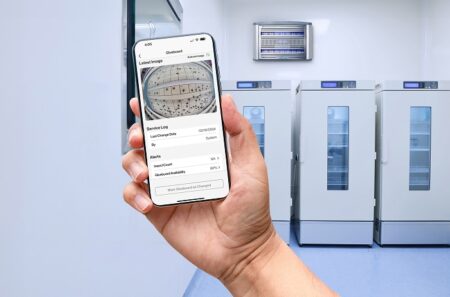AI technology helps hospitals battle infestations

medical and health bright lab laboratory indoor with instruments test tubes
Just weeks after a UNISON survey revealed that around one in six hospital staff (16%) reported evidence of silverfish, ants, and cockroaches, inside their buildings in the past 12 months, Pelsis Group has launched an AI-powered monitoring system designed to help health and social care facilities pro-actively prevent and control infestations.
The UNISON survey revealed that rats and other pests are a regular hazard in NHS buildings plagued with sewage leaks, defective lighting, broken toilets, and crumbling ceilings.
To provide support to estates managers, Pelsis Group has launched the Digital Halo, an advanced AI-powered monitoring system designed to prevent and control flying insect infestations.
It provides real-time, remote monitoring of flying insect activity. This enables enhanced risk reduction, faster response times, and more-efficient pest management.
The system uses Pelsis’ proprietary digital technology to detect, track, and analyse insect activity 24/7.
With the ability to set custom thresholds for insect catch rates and glue board capacity, users receive instant notifications when action is required, enabling them to address potential issues before they escalate.
And all data is reported in real time through the Pelsis Digital app or web portal, offering a flexible and intuitive interface.
Users can adjust reporting frequency and customise alerts, ensuring tailored monitoring that meets the specific needs of their facility.
By providing automated trend analysis and actionable insights, the Digital Halo optimises pest management strategies, reduces downtime, and supports compliance with hygiene regulations, giving organisations peace of mind where strict pest control is essential.
Commenting on the launch, Stuart Morgan, group portfolio lead for insect light traps at Pelsis, said: “Halo LED is a highly-effective, smart and sustainable fly control solution and we are confident it will meet the increasing demand for flying insect management in health and social care to address the hygiene and infection risks they bring.
“The use of LED technology offers versatility and significant sustainability benefits with reduced energy consumption, electricity costs, and a smaller carbon footprint alongside minimised waste owing to a longer lifespan.
“Developing Halo LED this way reflects Pelsis’ commitment to develop solutions which align not just with users’ and businesses’ pest control requirements, but their wider sustainability goals.”
